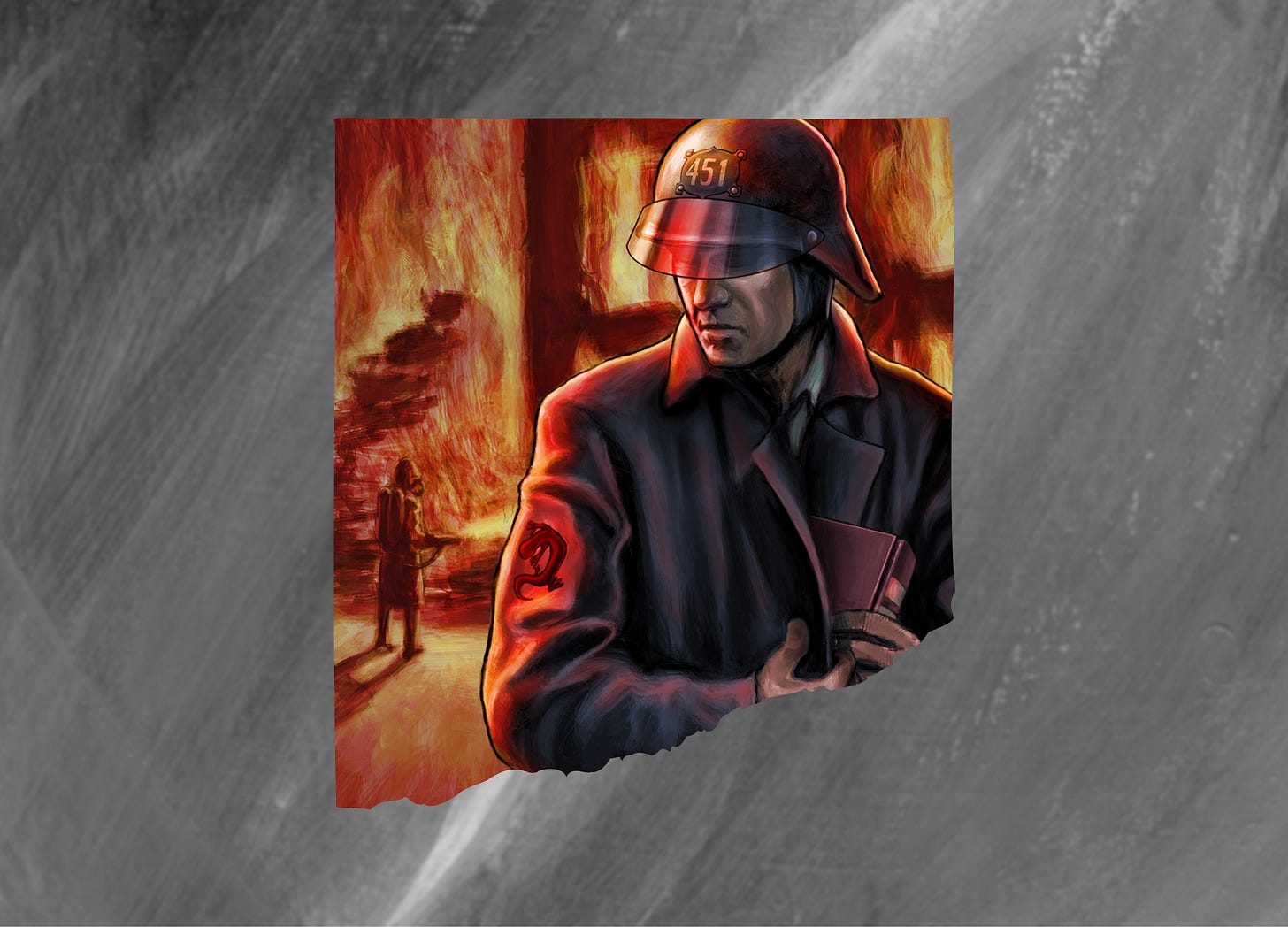📚 Fahrenheit 451 is a classic dystopian novel.
✍️ I studied it and found techniques you can apply to your own writing.
My analysis is broken into four posts:
Part 1: How to introduce characters by showing, not telling
Part 2: When you should introduce your inciting incident?
Part 3: The art of revealing information
Part 4: How Ray Bradbury makes you keep reading
Here is Part 4:
Readers turn the page because they have questions, not answers.
Authors try to create questions in readers’ minds that make them want to keep reading.
This is how interest is held across hundreds of pages.
Ray Bradbury does this excellently in Fahrenheit 451.
As detailed in my previous installment of this analysis, information isn’t dumped on the reader. Instead, it’s weaved into the story and explained as needed.
Now I want to focus on an element of the story that is specifically used to hold reader interest: the ventilator grill in Guy Montag’s home.
Here’s how Ray Bradbury makes you keep reading:
The first appearance of the ventilator grill is at the very beginning of the story.
Guy Montag, the story’s protagonist, returns home after an encounter with his new neighbor that makes him question his life.
Of course I’m happy. What does she think? I’m not? he asked the quiet rooms. He stood looking up at the ventilator grill in the hall and suddenly remembered that something lay hidden behind the grill, something that seemed to peer down at him now. He moved his eyes quickly away.
Seeing the ventilator grill makes Montag uncomfortable, causing him to look away quickly.
The reader instantly wonders:
What’s the significance of the ventilator grill?
Is there something hidden behind it?
Why does it make Montag so uncomfortable?
The ventilator grill is mentioned again later:
But Montag did not move and only stood thinking of the ventilator grill in the hall at home and what lay hidden behind the grill. If someone here in the firehouse knew about the ventilator then mightn’t they “tell” the Hound . . . ?
Even while out working his fireman job, Montag thinks of the ventilator grill:
“No.” Montag gazed beyond them to the wall with the typed lists of a million forbidden books. Their names leapt in fire, burning down the years under his axe and his hose which sprayed not water but kerosene. “No.” But in his mind, a cool wind started up and blew out the ventilator grill at home, softly, chilling his face. And, again, he saw himself in a green park talking to an old man, a very old man, and the wind from the park was cold, too.
All throughout the first portion of Fahrenheit 451 the reader is wondering about the significance of this ventilator grill in Guy Montag’s home.
It’s eventually revealed that Montag has been hiding books behind the ventilator grill:
He took hold of a straight-backed chair and moved it slowly and steadily into the hall near the front door and climbed up on it and stood for a moment like a statue on a pedestal, his wife standing under him, waiting. Then he reached up and pulled back the grill of the air-conditioning system and reached far back inside to the right and moved still another sliding sheet of metal and took out a book. Without looking at it he dropped it to the floor. He put his hand back up and took out two books and moved his hand down and dropped the two books to the floor. He kept moving his hand and dropping books, small ones, fairly large ones, yellow, red, green ones. When he was done he looked down upon some twenty books lying at his wife’s feet.
Imagine if Ray Bradbury had waited until this point in the story to reveal the ventilator grill.
There would have still been a surpise, but there would have been no suspense.
By mentioning it from almost the beginning, questions are created in the minds of readers that make them want to keep reading to discover the answers.
Continue reading my Fahrenheit 451 analysis:
Part 1: How to introduce characters by showing, not telling
Part 2: When you should introduce your inciting incident?
Part 3: The art of revealing information
Part 4: How Ray Bradbury makes you keep reading
Analyses are available only to C.S.M. Fiction paid subscribers. Thank you for your support.



